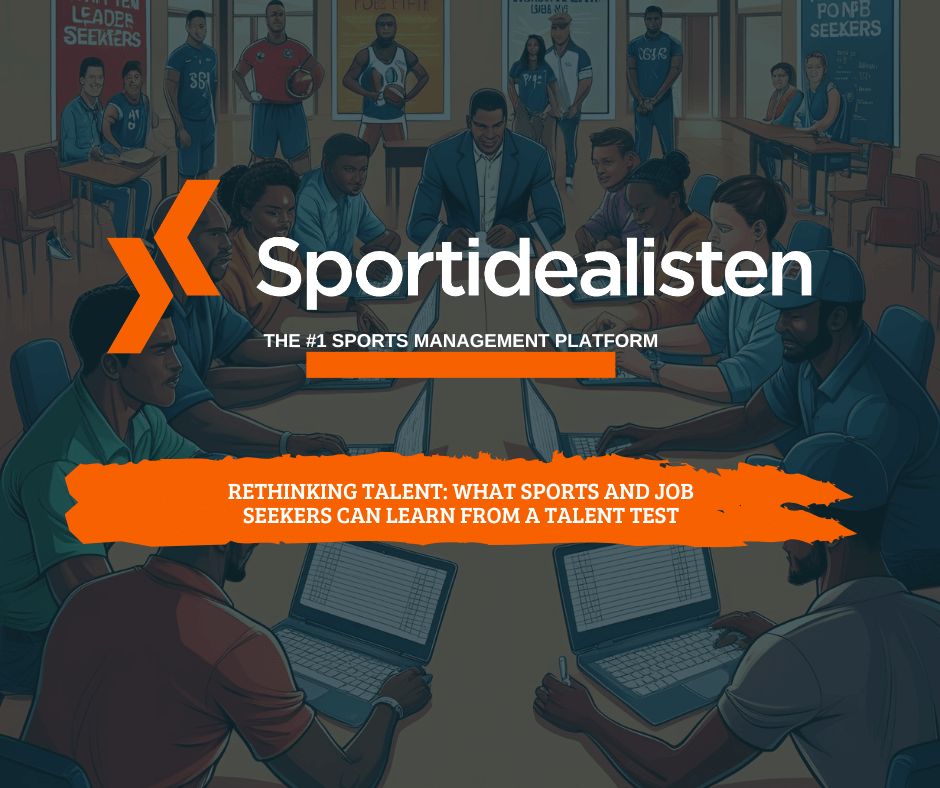In sports, we talk a lot about talent – spotting it, nurturing it, and maximizing it. But how often do we step back and ask: what do we actually mean by “talent”? And how can we make smarter decisions about people – whether they’re athletes, coaches, or future staff?
Talents Unlimited, a Danish company specializing in talent profiling, offers one such approach. While their tools are typically associated with business and HR settings, there’s plenty for the sports world to learn and apply.
What is Talents Unlimited?
Talents Unlimited uses a tool called the TT38® Talent Test, a psychometric assessment designed to help individuals and organizations better understand strengths, behavioral preferences, and core motivations.
Instead of focusing solely on hard skills or past achievements, this tool aims to uncover what kind of tasks and roles give a person energy – which is often a better predictor of success and long-term satisfaction.
Why does this matter in sports?
Whether you’re running a grassroots club or a professional team, understanding people is at the heart of everything. The better you match a person’s strengths to the right role – on or off the field – the better results you’ll see in performance, collaboration, and retention.
Let’s look at two examples of how tools like TT38® could help:
▶ Scenario 1: A Team Struggling with Cohesion
A women’s football team in a mid-sized club has gone through two tough seasons. On-field performance has dropped, and several players have quit citing poor team chemistry. The coaching staff feels there’s more going on than just tactics.
After introducing a structured talent profiling process, the team gains new insights. It turns out many players are individualistic thinkers who don’t respond well to a top-down coaching style. By adjusting their communication and giving players more autonomy, the coaches rebuild trust and boost morale – leading to better cohesion and improved results.
▶ Scenario 2: A Job Seeker Unsure of Her Path
Sara, a former floorball player, recently retired due to injury. She’s passionate about staying in sports but doesn’t know whether to pursue marketing, youth coaching, or event management.
Taking a talent test helps her discover that she thrives in creative, people-oriented environments and enjoys initiating new ideas. With this clarity, she targets a project coordinator role at a national sports federation – a position she previously hadn’t considered, but which fits her strengths perfectly.
Pros of Using Talent Profiling in Sports
- Smarter recruitment and team-building
- Increased retention and satisfaction among staff and players
- Personal development tools for athletes transitioning into new roles
- Better leadership through self-awareness
Things to Consider
- Cost: These tools may be too expensive for some smaller clubs without external funding.
- Over-reliance: Talent profiling should support, not replace, human judgment.
- Privacy and transparency: Handling personal data responsibly is key.
Final Thoughts
Using structured tools to better understand people might seem like a corporate concept – but it can be a real game-changer for sports organizations. Whether you’re building stronger teams, making better hiring decisions, or helping individuals grow, understanding what drives people is always a winning strategy.
And worth thinking about, is is better to sell and kick players, coaches and staff than investing in them and their potential?
Want to explore how tools like TT38® or similar approaches could help your club or career?
👉 Reach out to us at Sportidealisten.com/contact – we’re happy to chat, connect you with the right resources, or even help you get started.





